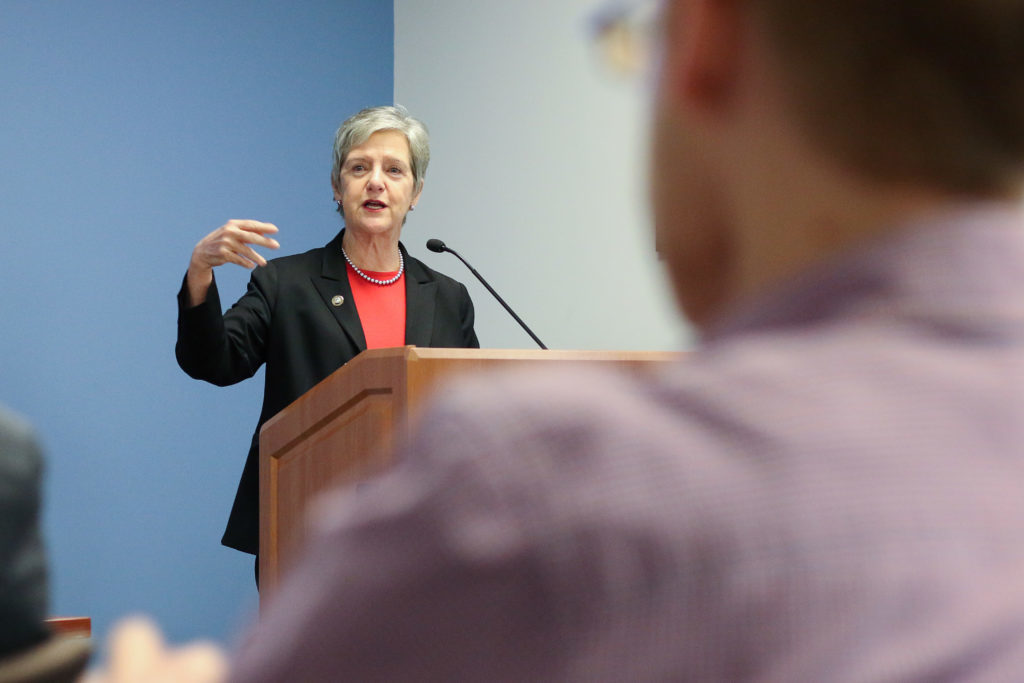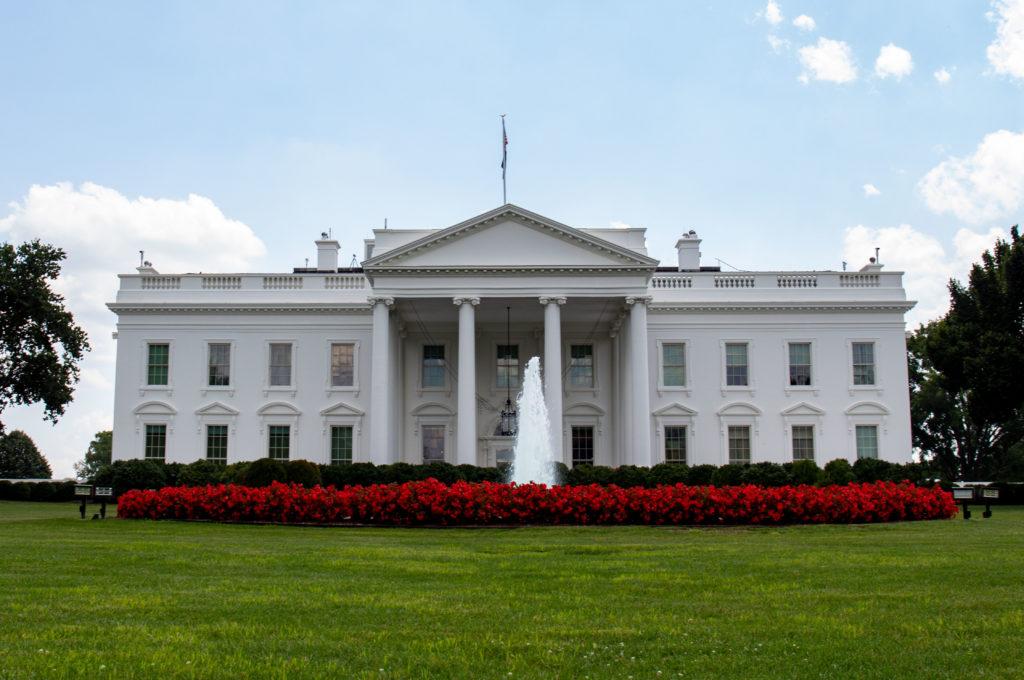A contributing writer for The New York Times visited the Elliott School of International Affairs Tuesday to discuss her bestselling account of former stockbroker Bernie Madoff’s financial crimes.
Diana Henriques, a Pulitzer Prize finalist and a member of the Board of Trustees, presented about her book, “The Wizard of Lies: Bernie Madoff and the Death of Trust,” which chronicles the jailed financier’s $65 billion Ponzi scheme. The event was part of the “Why Ethics Matter” series sponsored by the Elliott School’s Leadership, Ethics and Practice initiative.
Madoff, the former non-executive chairman of the NASDAQ stock market who was arrested in 2008, is credited with operating the largest Ponzi scheme of all time.
Henriques was the first journalist to interview Madoff after his arrest and said she recognized his “pathological inability” to admit failure. During the interview, Madoff claimed his fraud had not failed, saying that he “decided to let the fraud fall apart.”
“Madoff always found it easier to live with himself as a liar than to live with himself as a failure,” Henriques said.
She added that she got a taste of how Madoff’s victims felt when he complimented her work during the interview, calling his charm the “pixie dust of his praise.”
“The typical Ponzi schemer wants to persuade you that he’s the smartest one in the room,” she said. “Madoff made you feel like you were the smartest.”
Henriques said Madoff was able to con people into aiding him because they were focused on what he was promising them financially without considering the possibility of fraud. She said society should create rules for self-protection and apply those rules universally, even to people they may trust.
“When individuals trust, they blind themselves to red flags,” she said.
Henriques added that the group of investors associated with Madoff’s scandal knew about his crimes, but the fear of losing credibility and career prospects deterred people from exposing him. She said that since 2010, the Securities and Exchange Commission has financially incentivized whistleblowers to come forward.
“In today’s society, it is considered worse to be a whistleblower than a liar,” Henriques said.
Henriques said some of Madoff’s investors believed they were in the clear because an investigation into Madoff’s potential front-running – a form of insider trading – yielded nothing. But she said a person should always steer clear of anyone who engages in unethical behavior, even if it’s not criminal.
“If they’re not as ethical as you, run – don’t walk – the other way,” Henriques said.





